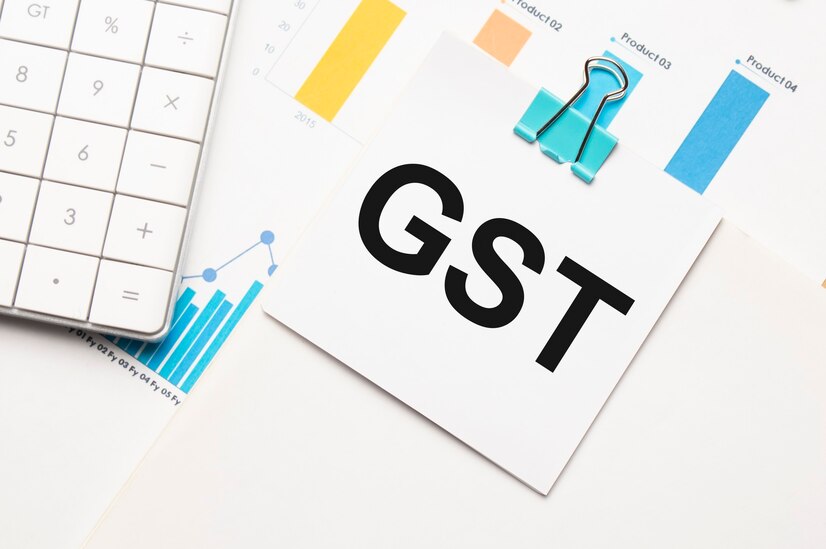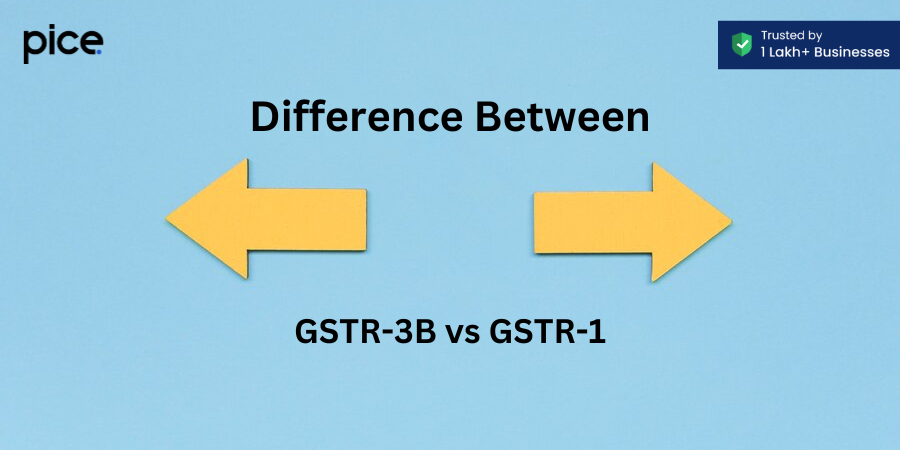Key Takeaways
- Anti-profiteering rules under GST ensure that benefits from reduced tax rates and input tax credits are passed directly to consumers, fostering fair pricing.
- The National Anti-Profiteering Authority (NAA) plays a crucial role in enforcing compliance, investigating breaches, and imposing penalties on non-compliant businesses.
- Compliance with anti-profiteering measures requires businesses to maintain transparent documentation and pricing strategies that reflect the savings from GST.
- Anti-profiteering measures protect consumer interests by preventing undue price inflation and promoting confidence in the fairness of market prices.
- Effective implementation and enforcement of anti-profiteering rules are essential for realizing the full benefits of GST, enhancing market competition, and stimulating economic growth.
Purpose of Anti-Profiteering Rules in GST
The purpose of anti-profiteering rules under the Goods and Services Tax (GST) system in India is to ensure that the economic benefits derived from the GST framework are passed down to the end consumers rather than being retained by businesses. These rules are crucial for maintaining fairness and transparency in the pricing of goods and services following significant tax reforms. Here’s a deeper look into the objectives:
- Prevent Unjust Enrichment: The primary goal is to stop businesses from capitalizing unfairly on the tax savings afforded by GST. This prevents entities from keeping the extra profits that should ideally result from lower tax burdens or improved tax credits, ensuring they are not unjustly enriched at the cost of consumers.
- Protect Consumer Interests: By mandating that any reduction in rate or benefits from input tax credits be passed on to the consumers through proportional reduction of prices, the rules safeguard consumers from inflationary pressures directly attributed to GST adjustments. This ensures that the price of goods and services remains fair and competitive.
- Enhance Compliance and Transparency: The anti-profiteering rules compel businesses to meticulously document and justify their pricing strategies. This not only enhances compliance with the new tax regime but also promotes transparency in how the benefits of GST are transferred to the pricing of goods and services.
- Stimulate Fair Competition: By enforcing these rules, the government ensures that all players in the market are operating on a level playing field. This encourages businesses to compete more on the quality and value of their offerings rather than exploiting tax adjustments to gain an unfair price advantage.
- Foster Consumer Confidence and Spending: When consumers are confident that the prices they are paying are fair and reflective of the actual tax burdens on businesses, they are more likely to spend, which in turn helps stimulate the economy.
In essence, the anti-profiteering rules under GST are designed to ensure that the transition to a new tax system benefits the entire economic ecosystem, from business entities to everyday consumers, reinforcing the overall objectives of GST to streamline tax practices and stimulate economic growth.
Overview of Anti-Profiteering Regulations under GST
The anti-profiteering regulations under the Goods and Services Tax (GST) framework in India are designed to ensure that businesses pass on the benefits derived from the new tax regime to consumers through reduced prices. These regulations are laid out to address concerns about businesses failing to transfer the benefits of tax reductions and input tax credits to end consumers. Here’s a comprehensive overview of these regulations:
- Legal Framework: The anti-profiteering rules are encapsulated under Section 171 of the GST Act, which mandates that any reduction in tax rates on goods and services or benefit due to input tax credit must be passed on to the consumers by way of commensurate reduction in prices. The provisions are designed to prevent price manipulation and undue profit-taking at the expense of the consumer.
- Establishment of Authorities: To enforce these regulations, the National Anti-Profiteering Authority (NAA) was established. This body is responsible for ensuring compliance with the rules, investigating potential breaches, and taking corrective measures if businesses do not pass on the benefits to consumers.
- Mechanism of Action:
- Complaints: Consumers or interested parties can file complaints if they believe a business is not passing on tax reductions or input tax credit benefits.
- Investigation: Upon receiving a complaint, the NAA conducts a thorough investigation to ascertain if benefits have been passed on. If a discrepancy is found, the authority can order the business to reduce its prices or return the undue benefit to the consumer along with interest.
- Penalties: Businesses found guilty of not complying with the anti-profiteering rules may face penalties including fines and cancellation of licenses.
- Documentation and Compliance: Businesses are required to keep detailed records to justify their pricing decisions. This includes how the benefits from GST rate changes and input tax credits are calculated and then reflected in pricing strategies.
- Duration of Anti-Profiteering Measures: Initially, these measures were to be temporary, typically for a two-year period, to assist in the transition to GST. However, the duration can be extended to ensure that the objectives of the GST are fully realized and that businesses comply over a longer term if necessary.
Overall, the anti-profiteering regulations under GST aim to protect consumers and ensure fairness in the economic system by compelling businesses to pass on tax benefits directly to the end users, thus fostering a more transparent and competitive market environment.
💡If you want to pay your GST with Credit Card, then download Pice Business Payment App. Pice is the one stop app for all paying all your business expenses.
Effects of Anti-Profiteering Rules on Business Operations

The introduction of anti-profiteering rules under the Goods and Services Tax (GST) in India has had significant effects on business operations. These rules mandate that the benefits of reduced GST rates and increased input tax credits must be passed on to consumers, influencing various aspects of business strategies and operations. Here are some of the key impacts:
| Impact Area | Description |
|---|---|
| Pricing Strategies | Businesses must reflect any reductions in GST rates or benefits from input tax credits in their consumer pricing. This requires reassessment of pricing models and may lead to lower product prices if benefiting from reduced tax liabilities. |
| Compliance and Documentation | Businesses are required to maintain detailed records to demonstrate compliance with anti-profiteering rules, including how GST benefits are calculated and affect pricing. Compliance has become complex and resource-intensive, possibly requiring system upgrades or external audits. |
| Operational Adjustments | Adjustments may be needed in supply chain management, procurement processes, and sales strategies. This could involve renegotiating contracts or revising terms of sale to ensure cost reductions or tax savings are passed through the supply chain. |
| Legal and Financial Risk | Non-compliance can lead to legal and financial risks, including fines, legal costs from investigations, and potential damage to reputation. Businesses must proactively manage these risks through compliance programs and ongoing staff training. |
| Consumer Relations and Market Competition | Adherence to anti-profiteering rules can enhance consumer trust and loyalty, providing a competitive edge. Transparent pricing and fair practices are crucial. Conversely, non-compliance can lead to consumer backlash and damage to market reputation. |
| Strategic Planning and Forecasting | Aligning pricing with GST benefits requires businesses to be agile in financial planning and forecasting, affecting investment planning, cash flow management, and strategic growth. |
In summary, while the anti-profiteering rules under GST aim to ensure that the benefits of the tax reform are passed on to consumers, they also impose significant operational, compliance, and strategic challenges on businesses. Managing these effects effectively is crucial for businesses to not only comply with the law but also to leverage the changes brought about by GST for competitive advantage.
The Influence of Anti-Profiteering on Consumer Welfare
The anti-profiteering measures implemented under the Goods and Services Tax (GST) in India have a significant impact on consumer welfare. These measures are designed to ensure that the benefits of GST, such as lower tax rates and increased input tax credits, are passed on to consumers in the form of lower prices, rather than being retained by businesses as additional profits. Here’s how these measures influence consumer welfare:
- Lower Prices: The most direct benefit for consumers is the potential decrease in prices of goods and services, as businesses are mandated to pass on any savings from GST to consumers. This makes products and services more affordable, increasing their accessibility to a broader segment of the population.
- Increased Transparency: Anti-profiteering rules compel businesses to justify their pricing strategies, which leads to greater transparency in how prices are set. This helps consumers make more informed decisions and fosters a greater trust in market practices.
- Consumer Empowerment: With mechanisms in place to file complaints against non-compliant businesses, consumers are empowered to act against unfair pricing. This enhances consumer protection and advocacy, building a more consumer-responsive business environment.
- Fair Market Practices: By preventing unfair profit-making at the expense of the consumer, anti-profiteering measures help in maintaining fair market practices. This discourages monopolistic and exploitative behaviors, contributing to a healthier economic ecosystem.
- Consumer Confidence: Ensuring that businesses pass on GST benefits increases consumer confidence in the economic policies of the government. Confident consumers are more likely to increase their spending, which can stimulate economic growth.
Evaluating the Effectiveness of Anti-Profiteering Measures under GST
The effectiveness of anti-profiteering measures can be evaluated through various metrics and observations:

- Compliance Rate: High compliance rates by businesses in passing on tax benefits to consumers indicate the effectiveness of these measures. This involves monitoring and auditing business practices regularly.
- Consumer Complaints and Redressal: The number and nature of complaints received and the efficiency in addressing them can also serve as an indicator. A responsive and effective redressal mechanism suggests a successful implementation of anti-profiteering measures.
- Market Price Trends: Analyzing market price trends before and after the implementation of GST can provide insights into whether the benefits are being passed on to consumers. Stable or price reduction in sectors with reduced GST rates may signal effective enforcement of anti-profiteering measures.
- Economic Impact: The broader economic impact, such as on inflation rates and consumer spending patterns, also reflects the effectiveness of these measures. Lower inflation rates and increased consumer spending can be positive indicators of effective anti-profiteering measures.
- Awareness and Education: The level of awareness among consumers and businesses about anti-profiteering rules and their rights and responsibilities under these measures can also determine their effectiveness. Effective communication and education campaigns are critical components.
Overall, while the implementation of anti-profiteering measures under GST has been a positive step towards ensuring fairness and transparency in pricing, ongoing evaluation and adjustments may be necessary to address challenges and enhance their effectiveness further. These measures need continuous monitoring and robust enforcement to truly benefit consumer welfare and ensure fair market practices.
FAQs
What are the Anti-Profiteering Provisions under GST?
The anti-profiteering provisions under GST, as specified in Section 171 of the GST Act, require that any financial gains from reduced rate of tax or enhanced input tax credits by businesses must be passed on to the consumers by reducing the prices of goods and services accordingly. These provisions aim to ensure that the benefits of GST reforms are not hoarded by businesses but are instead shared with the consumer, leading to fair pricing and preventing undue profit accumulation by companies.
How does the Anti-Profiteering Law protect consumer interests?
The anti-profiteering law is a consumer protection mechanism that ensures businesses do not exploit the transition to GST to increase profit margins unfairly. By mandating that savings from lower GST rates and input tax credits be passed on to consumers, it helps keep the cost of living stable and prevents inflation that could otherwise result from tax reforms. This law plays a critical role in maintaining equitable pricing in the marketplace, thereby protecting consumers from potential price hikes.
What is the role of the anti-profiteering Mechanism under GST?
The Anti-Profiteering Mechanism under GST is enforced by the National Anti-Profiteering Authority (NAA), which acts as a watchdog to ensure that businesses comply with anti-profiteering provisions. This body has the authority to investigate complaints about non-compliance, conduct audits, and even penalize businesses that fail to pass on benefits from GST reductions to consumers. The role of this mechanism is crucial in maintaining trust in the GST system and ensuring that the tax reform achieves its intended benefits across all levels of the economy.
How is a Commensurate Reduction in prices determined under the anti-profiteering rules?
A commensurate reduction in prices is calculated based on the exact benefit a business receives from reductions in GST rates or from utilizing input tax credits. This calculation involves assessing how much the business has saved due to these tax changes and ensuring that these savings are accurately reflected in the pricing of goods and services offered to consumers. The goal is to make the reduction in prices proportional to the tax benefit received, ensuring fairness and transparency in how these benefits are distributed.
What impact has the Benefit of Input Tax had on consumer prices due to anti-profiteering measures?
The benefit of input tax credits is a fundamental aspect of GST designed to prevent tax-on-tax (cascading effect) and reduce the overall tax burden on the supply chain. Through anti-profiteering measures, these savings are required to be passed on to the end consumer, leading to lower retail prices. This not only makes goods and services more affordable but also stimulates consumer spending and economic activity. Ensuring businesses comply with these rules is essential for maximizing the intended economic benefits of GST and supporting a more dynamic market environment.








